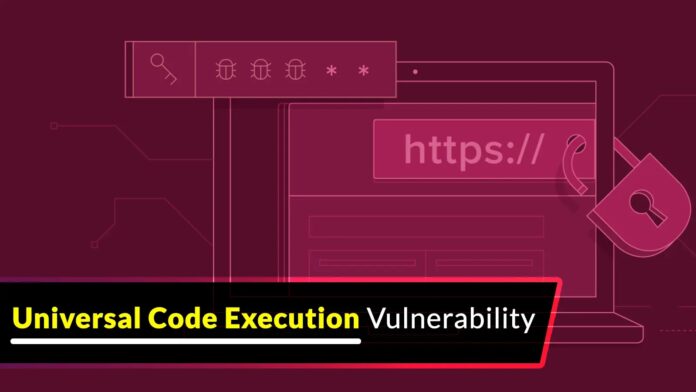[ad_1]
Hackers remotely execute malicious code on a compromised device or server by exploiting the Universal Code Execution vulnerability.
Through this vulnerability, threat actors can inject codes into server-side interpreter languages such as Java, Python, and PHP.
Hacking into this security flaw can steal information, divert money to other accounts, perform surveillance, and even severely affect some organizations.
Cybersecurity analyst Eugene Lim at SpaceRaccoon recently discovered that millions of users are at risk due to the Unniversal Code Execution.
Universal Code Execution Vulnerability
Chaining messaging APIs in browsers and extensions allows hackers to exploit the Universal Code Execution Vulnerability, breaking the Same Origin Policy as well as the browser sandbox.
Join our free webinar to learn about combating slow DDoS attacks, a major threat today.
Attackers can use content scripts and background script vulnerabilities to execute malicious code across any webpage potentially.
The study unveils two new vulnerabilities affecting millions of users and proposes a way for extensive detection of such vulnerabilities using dataset queries and static code analysis.
Browser extension design is vulnerable, and malicious web pages can evade the Same Origin Policy.
In other words, content scripts injected with wildcard patterns and taking advantage of the trust between background scripts and content can steal sensitive information from third-party websites.
.webp)
For instance, “Extension A” injects scripts on all pages though it is supposed to be for one site only, moreover, it requests access to cookies from various origins.
For this reason, this vulnerability allows an attacker to obtain session cookies from whitelisted domains, leading to the breaking of same-origin policy and ultimately compromising user security on these websites.
This research is about how browser extensions can achieve “universal code execution” by chaining different messaging APIs.
The attack vector combines content scripts with wildcard characters, background scripts, and native messaging capabilities.
Exploiting weaknesses within this chain allows attackers to bypass the Same Origin Policy and execute malicious code on the host system.
The study targets high-profile extensions, especially those involving PKI (Public Key Infrastructure) smart card functions.
Researchers found vulnerable extensions through a combination of dataset queries and static code analysis, one of which had 2 million users, allowing arbitrary loading of DLLs.
This highlights the need for better security processes during browser extension development and implementation, especially when dealing with native messaging capabilities.
"Is Your System Under Attack? Try Cynet XDR: Automated Detection & Response for Endpoints, Networks, & Users!"- Free Demo
[ad_2]
Source link
